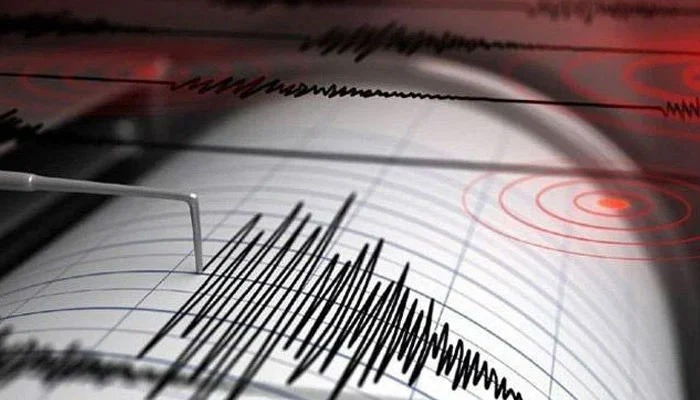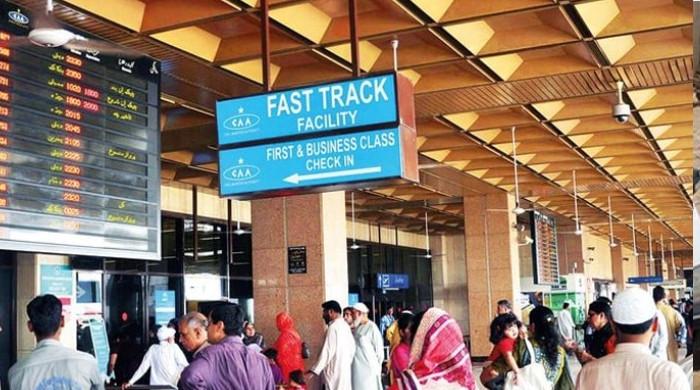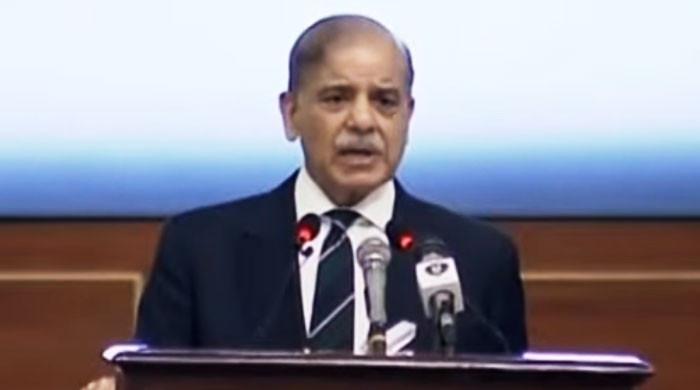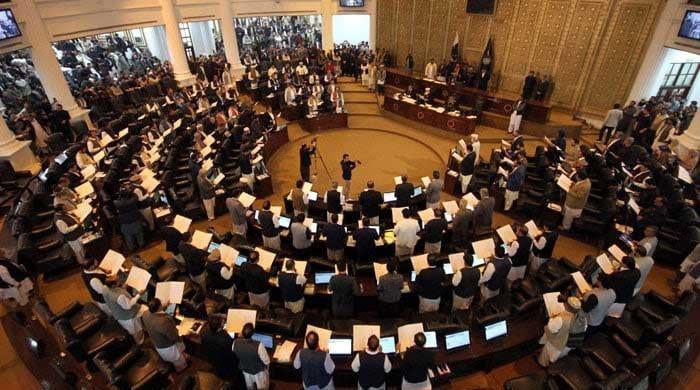Earthquake strikes Karachi, suburbs; no damage or casualties reported
According to the National Seismic Monitoring Centre, the tremors were recorded at 9:26 PM.
June 19, 2024

Jolts of a mild-to-moderate earthquake were felt in the coastal city of Karachi and its surrounding areas in the southern province of Sindh on Wednesday night, seismological authorities said.
According to the National Seismic Monitoring Centre (NSMC), the tremors were recorded at 9:26 PM.
The earthquake registered a magnitude of 3.2 on the Richter scale with a depth of 42 kilometres. The epicentre of the earthquake was located 32 kilometres southwest of Karachi.
Authorities are monitoring the situation and have advised residents to remain calm. There were no immediate reports of casualties or damage.
Earlier in the day, an earthquake measuring 4.7 magnitude jolted Islamabad, Rawalpindi, and parts of Khyber Pakhtunkhwa.
The tremors from the earthquake were felt across the twin cities as well as cities across the country's northwestern province.
KP cities, where tremors were felt, included Peshawar, Swat, Parachinar, Malakand, Lower Dir, Hangu, Charsadda, Swabi, and their surrounding areas. The tremors were also recorded in districts North and South Waziristan.
According to the National Seismic Monitoring Centre, the earthquake's epicenter was the southeastern region of Afghanistan.
The depth of the earthquake, it added, was 98 kilometres.
In the first week of this month, an earthquake of 3.2 magnitude had jolted parts of Karachi including the Clifton neighbourhood.
The epicentre of the quake was 15 kilometres northeast of Karachi at a depth of 22km, according to the seismic monitoring centre.
However, no loss of life or property was reported due to the earthquake.
This was the third time that the city was hit by a minor quake in the last few weeks ahead of June.
On May 2, a 2.3 magnitude earthquake jolted parts of the metropolis including Gadap Town, Katohar and adjoining areas of Malir district.
The epicentre of the quake was 38 kilometres from the northeast of Malir at a depth of 84km, according to the seismic monitoring centre.
Similarly, a 3.2 magnitude earthquake jolted Karachi's Malir district on on April 24.
Natural disasters such as earthquakes are not uncommon in Pakistan, as the country is situated on the boundary of the Indian and Eurasian tectonic plates.
Large parts of South Asia are seismically active because a tectonic plate known as the Indian plate is pushing north into the Eurasian plate.
Recent earthquakes underscore the importance of disaster preparedness and mitigation measures.











